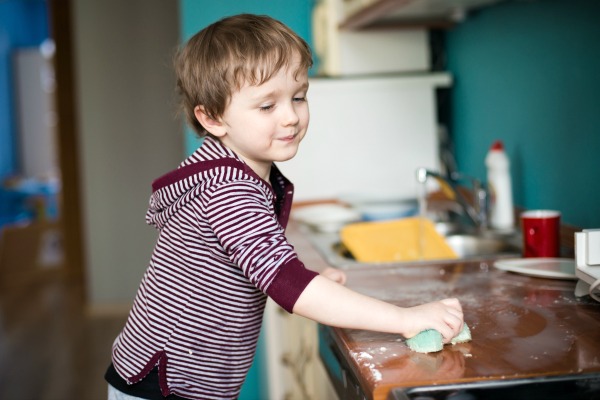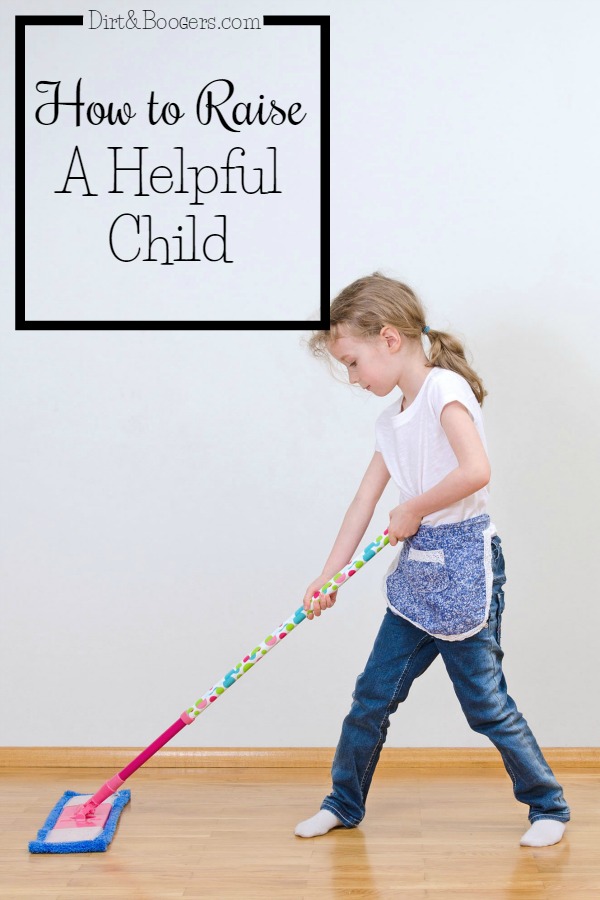My 6-year-old is my helper.
He puts his clean clothes away, he helps with cleaning up after meals, he likes (yes likes!) to help me unload the dishwasher, he helps set the table, and he cleans up his toys with little prodding on my part.
Daily, this boychild of mine willingly offers to help me. He even put “help with chores” on his summer bucket list. This kid loves to help, and I am always thrilled beyond belief to have it.
A prime example happened a few months ago when I was feeling overwhelmed with absolutely everything – work, family commitments, my husband’s work demands, and taking care of the house.
The house was a cluttered mess, and I was feeling the frustration build with every piece of clothing or toy I found on the ground.
It was at this point when I was on the verge of exploding that I stopped, hand in mid-air, and took a deep breath in order to prepare myself to call both boys over to ask for help, when he came over to me and said “Mommy, you seem upset, what can I help with?”
Amazing, right? Especially for a 6-year-old! Now, he ain’t perfect, he can still get frustrated when I request things from him, but most of the time he’s willing to help me out, because he believes that he’s helpful, it’s just who he is.
 This post may contain affiliate links
This post may contain affiliate links
I feel truly blessed to have such a helpful child and yet, it wasn’t that long ago that he was exactly like his younger brother.
Trying to get my younger child to help is like pulling teeth.
I ask him to…
- clean up his toys and he whines.
- take his dirty dishes to the sink five times before they get there.
- put his dirty clothes in the hamper
and he leaves them on the floor.
- feed the pets and he cries “But that’s not fun! Why do I have to do that?”
After feeling exhausted by my younger son to the point of wanting to give up, I came to the realization that I forgot to use the same tactics on him that I had used with my older son.
I was asking him to do the same amount of work but failed to motivate or encourage him.
So, it’s time for me to step up and teach him how to be helpful.

Lead by Example
If you want a child to do something, it helps to have them witness you doing it as well as the result that came from it. Whenever I’m finished with a project, I clean up my mess.
When I’m done eating, I take my plate, utensils, and glass to the sink. I organize my things so that I know where they are when I need them.
Children see this and are more likely to also clean up after themselves. If you’re leaving a mess everywhere then they will have a harder time understanding why cleaning up is important.
Label the Positive
Notice the times that they do something helpful and praise them, telling them they’re a good helper.
When we use character traits like “good helper” or “helpful kid”, over time children begin to make that part of their personality. The more you label them as being a helper, the more they will believe it to be true.
My oldest son always tells me that he’s a good helper and that he likes to be a helpful kid, it’s just a part of who he is. So it makes sense that he’s more likely to help because helping is what he does.
Delegate and Praise
Give them tasks throughout the day to practice their helpful skills. The more they practice, the better they’ll learn. And every time they do something helpful, praise them.
As an example, “hey buddy, my hands are full, can you be a helper and open the door for me” Then praise them, “thanks again for being so helpful, I appreciate it.”
Make it Fun
For younger kids, singing the clean up song is a huge help in picking up toys, but even as they get older it’s fun to add any songs and even a little dance to the process of cleaning up. Counting helps too. We count toys picked up, silverware put away, and the number of markers and crayons we find.
Fit for all Ages
It’s easier to raise a helpful child earlier in development than later, but it is possible to teach older children to be helpful. All of the same tips apply with a slightly different approach.
As they get older you can explain things more. Explain why you need help, why it’s important for them to take more responsibility, how important it is to work together, and that every person finds their own rhythm when it comes to cleaning, organizing, and helping others, but the end result is the same. Taking care of your things, taking care of shared items, and treating others the way you want to be treated.
Raising a helpful child can be a truly daunting challenge at times. Especially if it seems like one more item to add to the never-ending to-do list. But it doesn’t have to be a frustrating endeavor.
By leading by example, staying positive, and having fun, it is possible to turn the most stubborn mess maker into a happy, helpful partner. One step at a time. One day at a time.

We play a couple games to help tidy up when there’s a toy room full of mess. The first is the “secret item” tidy-up where I choose something out of the mess and whoever puts it away gets a prize. Of course, they don’t know what I chose so the more they tidy, the more they’re likely to pick up the item. The prize isn’t a treat or a sticker, it’s a story of their choosing!
The other game is “hide and seek” tidy-up. I cover my eyes and count extremely slowly to 30. They see how much they can put away (properly!) before I reach 30 to surprise me. Often I have to count 2 or 3 times, but the total clean-up time is about 5-10 mins which is much faster than if I just ask them to clean and seems to involve a lot less “It’s too much!!” whining.
The trick is to use these sparingly and for all other cleaning just to keep it small -like “please tidy the cars before supper” or “The stuffed animals need to be put away before we go to the park”. Only one item to clean before a set time keeps them on task and isn’t “too much”.
My kids have become used to their chores -putting away clean laundry, clearing the table, picking up toys and rooms, dirty laundry in hamper, sweeping, setting the table, wiping the table- that they don’t really whine much anymore because it’s habit. I actually have to break up fights over who gets to set the table or sweep the floor! Once my 4 yr old knows the days of the week we’ll set a schedule so that’ll help that problem.
I love your idea of praising “being a helper” so it becomes a positive part of their identity. We praise using manners and kind speaking (instead of bickering!) too.
Whoa! Great tips, thank you so much!!
What a delightful thing to come across! I insist people to take notes from this article and apply the same in their life. Handling babies and raising them right is a tough task. I wish every child is raised to be a great human being.Good sharing.